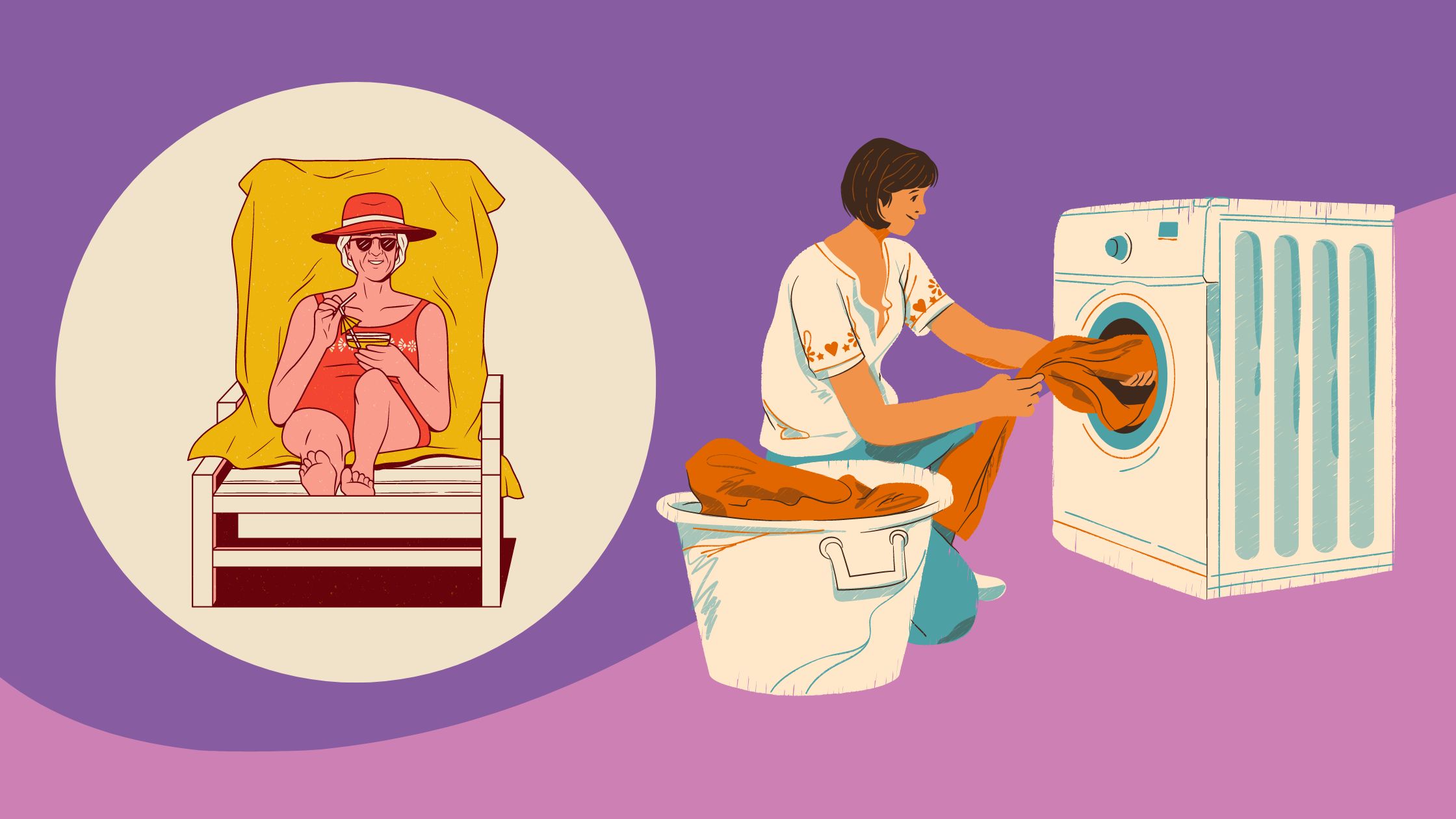7 Signs of Depression in Women
Depression is a medical condition that affects how you think, feel, and act. It is not a sign of weakness or a moral failing. Instead, it often relates to changes in chemicals in the brain. Life events, stress, and family history can all play a part in depression’s arrival.
Women, in particular, can experience depression in ways that are both similar to and different from men. For women, certain times may be especially vulnerable, such as the weeks after childbirth, around menopause, or during monthly hormonal cycles.

When a woman is depressed, she might not just feel sad. She could feel empty, numb, or even irritable. She might lose interest in things she once loved, and she could struggle with feelings of guilt or worthlessness. Depression can make it tough to get through even simple daily tasks. It can affect one’s sleep, appetite, and energy levels.
Without proper care, these feelings can worsen. But with the right treatment, including therapy, medication, exercise, or a combination of approaches, most people do improve.
Keep reading to learn more about common signs of depression in women. Before we begin, please keep in mind that everyone is different. Not every woman will have all of these signs. Some may only have a few, or perhaps their symptoms will come and go.
1. Persistent Sadness or Low Mood
Almost everyone feels blue once in a while. But when sadness lingers, day after day, it may be a sign of depression. This sadness might feel like a heavy weight pressing down. It can make a woman feel hopeless or tearful. She may cry easily, perhaps over small things that never bothered her before. Even things that should bring joy, like a warm compliment or a sunny day, may fail to lift her spirits.
This feeling can also appear as emotional numbness. Sometimes, instead of sadness, a woman may simply feel “empty.” It might seem as though all the colors have drained from her world. In other cases, irritability or anger may be present. She may feel on edge, snapping at people without really knowing why. The main point is that this mood change lasts for a long time—at least two weeks—and often much longer.
2. Loss of Interest in Favorite Activities
Another sign of depression in women is a loss of interest or pleasure in things once enjoyed. For example, if a woman once liked listening to her favorite music, meeting friends for a movie, or going for a walk in the park, now she may not care about these activities at all.
This loss of interest can spread to many areas of life. Food might not taste good, or reading a good book might feel boring. This change can confuse loved ones who remember how much she used to love certain hobbies. To her, it might seem as though life has lost its sparkle. This is not about being lazy or picky. It is a symptom of the illness that can steal joy from daily life.
3. Changes in Appetite or Weight
Many women with depression notice changes in their eating habits. Some may lose interest in food. They might skip meals because nothing tastes good, or they feel too tired to prepare a proper meal. Over time, this can lead to weight loss and poor nutrition. Others might find themselves eating more than usual, seeking comfort in sugary snacks or high-calorie treats. This kind of emotional eating may lead to weight gain, which can fuel negative feelings about body image.
It is not always about what is on the plate. Appetite changes can also reflect how the person feels inside. When the body’s balance is off, hunger and fullness cues might get mixed up. Changes in appetite and weight that last more than a few weeks and seem connected to mood shifts can be a sign that something deeper is wrong.
4. Problems with Sleep
Sleep and mood are closely tied. Depression in women often affects how well they sleep. Some may find it hard to fall asleep, lying awake for hours as worries dance through their mind. Even if they do drift off, they might wake up often, never feeling fully rested. Others may sleep too much—spending long hours in bed, yet never feeling refreshed. They might nap during the day or feel the urge to crawl under the covers instead of facing the world.
These changes in sleep patterns might seem small at first, but they can have a big impact on daily life. Without proper rest, it becomes hard to think clearly, handle stress, or enjoy life’s simple pleasures. Sleep troubles that last for more than a couple of weeks are worth paying attention to, especially when other signs of depression are present.
5. Fatigue or Low Energy
Depression often feels like carrying a heavy load at all times. Many women describe feeling weary as if every action requires extra effort. Climbing a flight of stairs might seem more difficult than before. Simple tasks like getting dressed, washing dishes, or taking a shower might feel exhausting.
Fatigue from depression is not the same as the tiredness you feel after a long day of work or play. This kind of tiredness sticks around even after a good night’s sleep if such sleep is possible. It can make concentrating on tasks harder. Even reading a single page or focusing on a conversation can be challenging. Over time, this lack of energy can lead to a cycle in which a woman avoids activities, only making her feel more tired and less motivated.
6. Feelings of Guilt, Worthlessness, or Shame
One of the cruel parts of depression is the way it twists thoughts. A woman struggling with depression might blame herself for things that are not her fault. She may feel guilty about not being able to snap out of sadness or about not being the cheerful friend she once was. These feelings of guilt can stick to her mind like glue, making it hard to see the good in herself.
Feelings of worthlessness or shame may also arise. She might believe that she is not smart, kind, or capable enough, despite evidence to the contrary. Sometimes, these negative thoughts are very strong, persistent whispers in the back of the mind. This sign can be especially harmful since it can prevent her from seeking help. Believing she does not deserve support can keep her stuck in the cycle of depression.
7. Trouble Concentrating or Making Decisions
Depression can cloud the mind. Women who struggle with this condition often find it hard to think clearly. Making even small decisions, like what to have for breakfast, can feel complicated. Concentrating on tasks at school, work, or home can become a true challenge. It might take longer than usual to read a book or follow a television program. Some women may forget things more easily or feel as if their minds are moving in slow motion.
These mental changes can cause frustration and embarrassment. A once efficient, organized person may feel disoriented by her inability to stay on top of things. However, this is not a sign of stupidity or laziness. It is a symptom of depression affecting how the brain works. Recognizing it as such can open the door to seeking help.
When to Seek Help
If you notice these signs—either in yourself or someone you care about—it may be time to talk to a health professional. If these feelings have lasted for two weeks or more, and if they affect daily life, do not wait for things to get worse. Seek advice from a doctor or a therapist. They can help you understand what is going on and recommend treatments that fit your needs. These might include therapy, medication, lifestyle changes, or a combination of these approaches.
Keep in mind that depression is treatable. Like other medical conditions, it often requires proper care. Some people worry that asking for help might mean taking medicine or making big changes. But finding the right path to recovery is not a sign of weakness. Instead, it shows courage and self-respect. Many women have moved from the darkness of depression to a brighter, healthier life.
How to Support Someone Who Might Be Depressed
If you suspect a friend, family member, or colleague is depressed, you can help. Start by listening without judgment. Sometimes people just need someone to hear their pain and acknowledge that it is real. Encourage them to seek professional help and remind them that depression is a medical condition, not a failure. Offer to help with small tasks, like driving them to appointments or helping them find resources.
Try to stay patient and understanding. Depression can make people irritable, withdrawn, or quiet. This is not about you; it is about what they are going through. Your kindness and steady presence can be helpful, showing them that they matter and that things can get better.
Lifestyle Changes That Can Help
In addition to seeking professional help, certain lifestyle changes can support recovery. Regular exercise, for instance, has been shown to improve mood by changing the balance of chemicals in the brain. Even a short daily walk. Good nutrition matters as well—eating balanced meals rich in fruits, vegetables, and whole grains gives the body and mind the fuel they need.
Taking time for relaxation and hobbies can also help. Listening to music, writing in a journal, practicing yoga, or spending time in nature can calm the mind. Reducing stress by setting limits at work or learning new coping skills may also relieve some pressure. Some women find help in joining support groups, where they can share their experiences with others who understand.
Overcoming Stigma
It is important to remember that depression is common and treatable. Many people have successfully climbed out of its depths, regaining their health and happiness. Unfortunately, some still feel that mental health issues carry shame or blame. The more we learn and talk openly about depression, the less power the stigma holds.
If you feel ashamed or worried about what others might think, consider this: caring for your mental health is no different from caring for your physical health. If you broke your arm, you would see a doctor. If your heart felt heavy for weeks, you deserve help too. Your feelings are real, and they matter.






